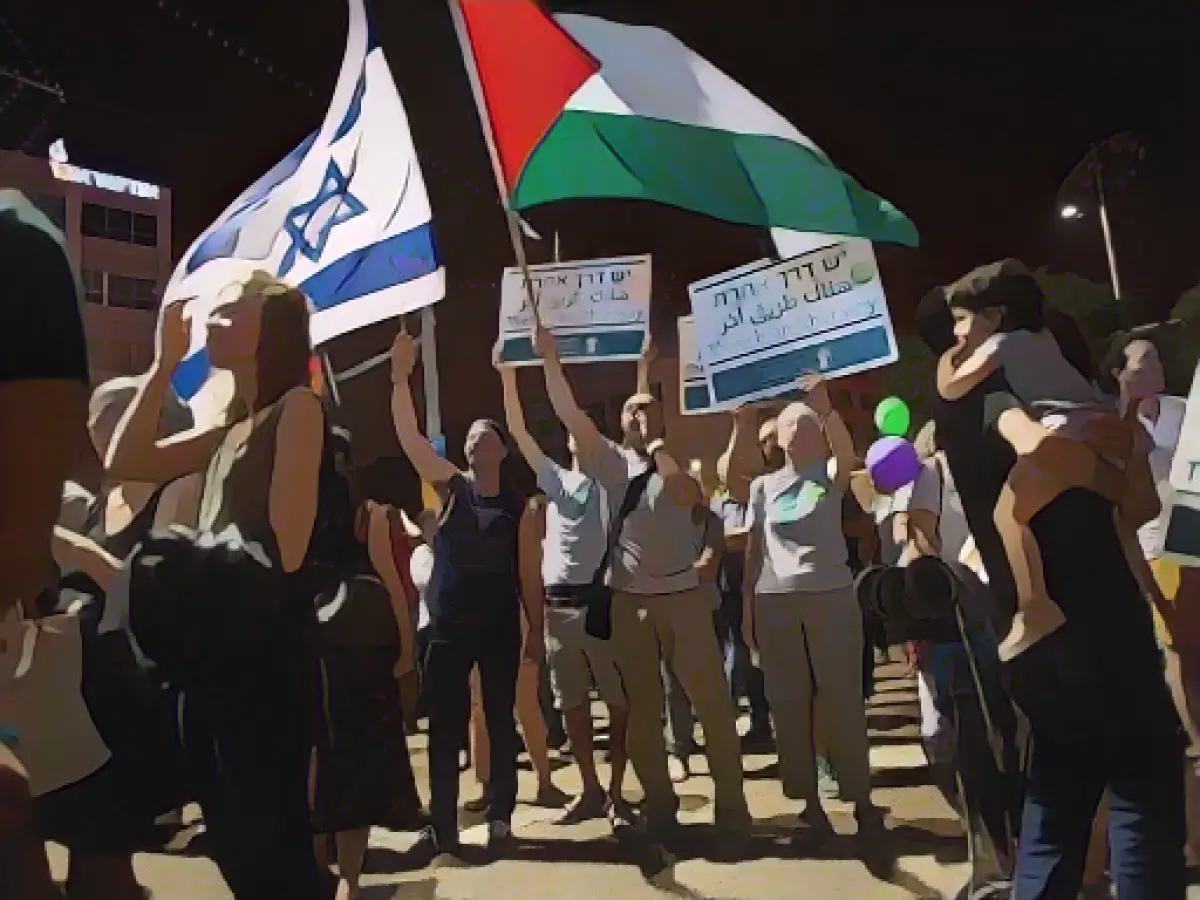The Israel-Palestine conflict, already taking a devastating toll this year with more casualties than ever before, has revitalized discussions about a peaceful resolution. One proposed solution is the two-state plan—an independent Palestinian state coexisting side by side with Israel.
German Chancellor Olaf Scholz and U.S. President Joe Biden have once again advocated for the two-state solution in the wake of the recent Gaza war, with the latter stating that it's the only means to ensure long-term security for both peoples.
However, the road to peace hasn't been smooth. Countless attempts at reaching a compromise have fallen through, leaving countless sticking points in their wake. Border demarcations, the Palestinian refugee issue, Jerusalem's status, settlements, and resource distribution are just a few of the contentious issues that have thwarted progress.
The year 1993 is often hailed as a turning point, with the signing of the Oslo Peace Accords marking a hopeful beginning for peace negotiations. The agreement led to the establishment of the Palestinian Authority, responsible for governing Palestinian areas. This period of "peace," however, lasted only five years, and hopeful long-term aspirations for a separate Palestinian state have lingered unfulfilled since.
The expansion of Israeli settlements in the West Bank and Jerusalem forms a significant barrier to achieving a two-state solution. Since the 1967 Six-Day War, Israel has consistently increased its settlement population. In 2023, this number has risen to around 700,000, making it increasingly difficult for Palestinians to gain contiguous land for a prospective state.
The terrorist organization Hamas has also contributed to the conflict by repeatedly attempting to sabotage peace efforts through violent attacks. The group's ultimate objective is the destruction of Israel, making the two-state solution even more elusive.
Despite this set of challenges, the need for a peaceful resolution to the Israel-Palestine conflict remains pressing, with this year's deadly escalation of violence serving as a stark reminder of the urgency.
SOURCE:
Enrichment Data:
- Settlements:
- The expansion of Israeli settlements into the West Bank has severely reduced available land for a potential Palestinian state. As of November 2023, nearly 700,000 Israeli settlers live in the West Bank and East Jerusalem across 150 settlements and 128 outposts.
- Jerusalem Dispute:
- The contentious issue of Jerusalem's status as a potential capital for both Palestinians and Israelis has complicated negotiations. The city's significance to Abrahamic religions further complicates the situation.
- Border Disagreements:
- The establishment of agreed-upon boundaries has proven to be another major challenge, with physical, symbolic, and cultural considerations all influencing the process.
- Security Arrangements:
- The presence of an international force to ensure border security is a significant sticking point in negotiations, with both Israelis and Palestinians holding differing views on the necessity and desirability of such a force.
- Palestinian Internal Divisions:
- The politically and geographically fragmented nature of the Palestinian territories presents challenges for establishing a unified government. Hamas's control of the Gaza Strip and the Palestinian Authority’s governance of the West Bank, for example, creates a rift in the Palestinian political sphere.
- Historical Narratives and Power Disparities:
- Historical narratives and power disparities play a significant role in the conflict, particularly when addressing issues like Palestinian refugees and Israeli security concerns.
- International Support and Mediation:
- The U.S. has historically served as a mediator in negotiations, but its role has been complicated by political shifts, such as former U.S. President Trump's recognition of Jerusalem as Israel's capital.
- Extremism and Violence:
- Extremist groups on both sides have perpetuated violence and acted as obstacles to the peace process, hardening negotiating positions and making a lasting agreement increasingly difficult.








